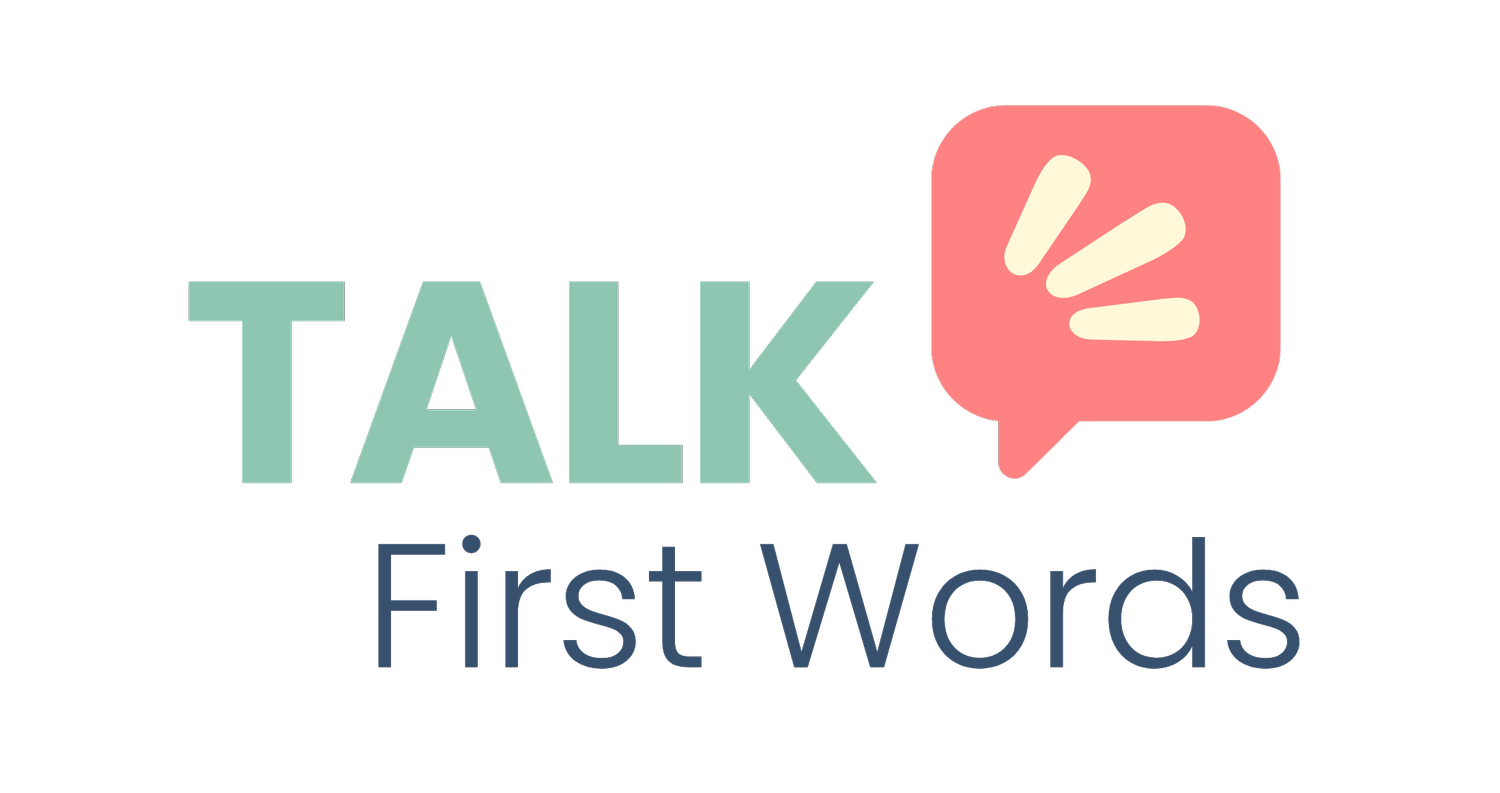When to Worry About Late Talking — and What to Do First
“All kids develop at their own pace... right?”
If you're worried your child isn't talking yet, you're not overreacting — you're paying attention. And that matters.
As a pediatric Speech‑Language Pathologist, I’ve spoken with hundreds of parents who waited months (or even years) after their gut told them something felt off. So let’s talk honestly about what counts as “late talking,” when to seek help, and — most importantly — what you can do right now to support your child’s language development, even if you’re still waiting for services.
❓ Is My Child a Late Talker?
Here’s what we typically expect to see by age:
🚩 By 12 months:
Babbles (ba-ba, da-da)
Responds to name
Uses gestures (pointing, waving)
Tries to imitate sounds
🚩 By 18 months:
Says around 10 words (approximations like “ba” for ball count!)
Combines gestures and words
Understands simple instructions (“Get your shoes”)
🚩 By 24 months:
Says 50+ words
Starts combining two words (“more milk,” “daddy go”)
Can label familiar people and objects
If your child isn’t meeting these milestones, it’s worth paying attention. And no — it’s not just because they’re a boy or a late bloomer. Early support can make a real difference.
🙋♀️ Should I Wait or Act?
This is the #1 question I hear from parents:
“Should I just wait a few more months?”
Here’s the truth:
If you’re already concerned, you don’t have to wait.
In fact, acting early allows you to:
Increase your child’s communication attempts
Strengthen their understanding of language
Build a strong foundation for future words
That’s exactly what we do inside the TALK coaching program — no waitlists, no referrals, just step-by-step support for parents who want to take action now.
✅ What You Can Do Today
Even before a formal evaluation, there are powerful strategies you can use at home. Start with these three:
1. Model, don’t demand
Instead of “Say ball!” → try:
“Ball! You rolled the ball.”
Narrating helps build understanding and gives your child a template to imitate.
2. Pick a few focus words
Choose 2–3 words for the week and repeat them in different routines:
“More,” “go,” “up,” etc.
3. Pause and wait
After you speak, wait 3–5 seconds. This gives your toddler space to respond with a sound, look, gesture, or word. Don’t rush to fill the silence.
💬 But My Pediatrician Said “Wait and See”…
Pediatricians are amazing, but speech and language isn’t always their specialty. If your doctor says “give it time” and your gut says otherwise, it’s okay to seek a second opinion.
You do not need a diagnosis or referral to start helping your child.
Programs like TALK are designed for parents who want to support language at home, right now.
📅 Ready to Take the First Step?
If you’re thinking:
“I don’t want to wait six months for an evaluation...”
“I just want to know what to DO...”
Then TALK Coaching is for you.
Inside our weekly group, you’ll learn:
What to say and do during everyday routines
How to spot and support progress
How to build language without pressure or flashcards
👩💻 [Join TALK Coaching Here]
📲 DM me on Instagram at @talk.firstwords to ask if it’s a good fit for your family.

